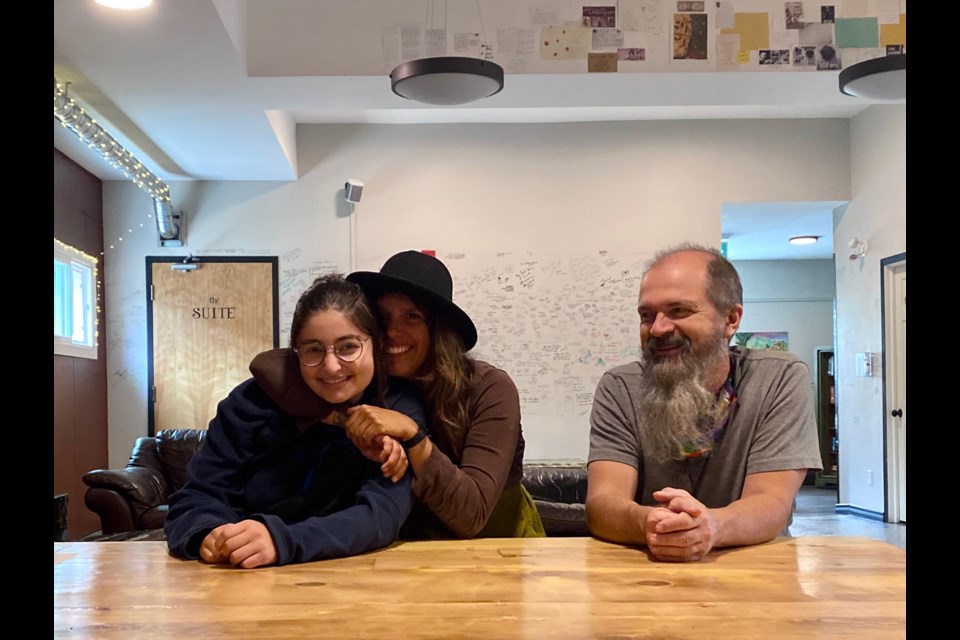When COVID-19 hit, the city's tourism industry was hit hard.
As Thunder Bay residents hunkered down at home, canceled travel plans and stayed within the region, a Métis woman belonging to the Painted Feather Woodland Métis Tribe, Holly Watson, and her staff turned these difficult times into an opportunity to create regional inspiration for her business, Haven Hostel.
Dynamic, long-term solutions
Before the pandemic, Watson introduced a new program at Haven Hostel that offered housing for international students during the school year. This gave students stable accommodation for eight months out of the year.
The hostel’s move to student accommodation came to be after it’s second year in business and there was a lot of support from the community.
When the shut down happened due to the pandemic and students were forced to stay in Thunder Bay until travel restrictions lifted, Watson was eager to make sure the hostel was a place they felt comfortable.
Through a GoFundMe campaign, Haven Hostel staff raised enough money to offset their rent and living expenses.
Watson added fundraising and community meals assisted with taking care of the students.
The Haven Hostel has helped form a family of different backgrounds.
“Our idea is to leave our mark on this neighbourhood, work with the neighbours, brighten it up and work with local artists,” Watson said.
Through the Nishnawbe Aski Development Fund, Watson was able to get funding to make this dream a reality.
Lakehead University student Yasmin Fattahi said people are surprised by what can be found in the city.
“This is a starting point for [people] becoming open minded to what Thunder Bay has to offer,” Fattahi said.
The university student came to Thunder Bay from Southern Ontario to attend Lakehead University and doesn’t see herself leaving this community anytime soon.
After living in the hostel for her first year, she is hoping to transition from on-site assistance to one day becoming a hostel manager herself.
However, her dreams were put on hold due to the pandemic as Fattahi returned home to finish school online, but she has since returned to Thunder Bay and continues to help out.
Watson’s second hand, Hanuman Novak has lived with the students in the hostel over the winter and took over for Fattahi while she was gone. He will followed in Fattahi’s footsteps and helped to create a place of comfort for those staying at the hostel.
“The inclusiveness of it, they can come here and be completely at ease. They don’t have to worry about anything.” Novak beams.
Why a hostel in Thunder Bay?
“There was a gap for this type of tourism accommodation,” Watson said.
Since before the internet and the accessibility of connection, travel centered on exploration through storytelling. It’s through these stories of foreign land one can truly experience the culture and depths before them.
This is more than true for Thunder Bay, a city isolated and protected.
“The culture is super inclusive and it’s all about the stories,” Watson said. “I’d get really inspired in hostels.”
She believes this experience gives the traveler the chance to continue on a completely different trajectory from their original plan, because of the stories the locals tell.
Watson wants the travelers to come to her for these stories, a chance to lead them in a direction that wasn’t on their radar.
“I dreamt all along that I would be that person one day… that people would be picking my brain [about my city]. “After being in British Columbia for six years, Watson moved back to Thunder Bay to embark on this dream.
“We get people going on a cool adventure path around the city.”
Future tales and telling’s
Merchandise is in the works, frozen pizzas from Eat Local Pizza, group and all-inclusive packages are just some of the new plans Watson is working on to come out of this pandemic successfully.
With grant applications, Watson and staff are building more group friendly accommodations.
Individual, locked cubbies for dry goods and a kitchen upgrade, making them a much more desirable group accommodation.



